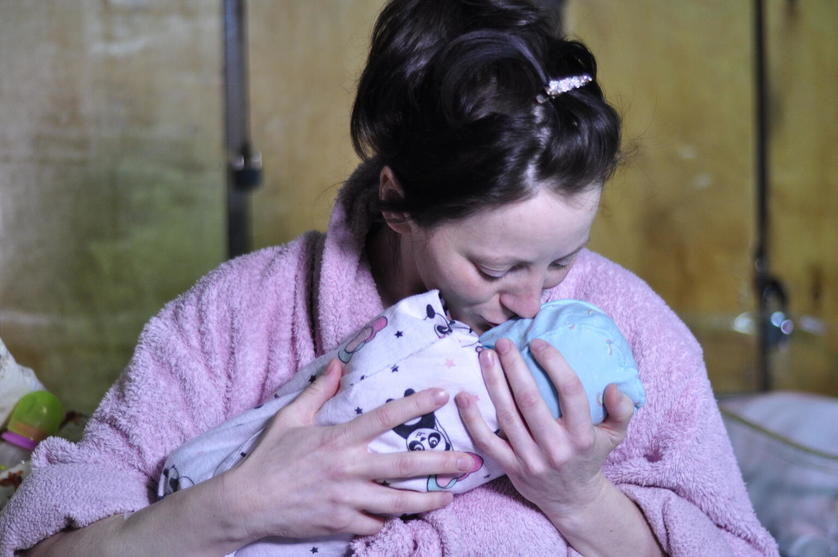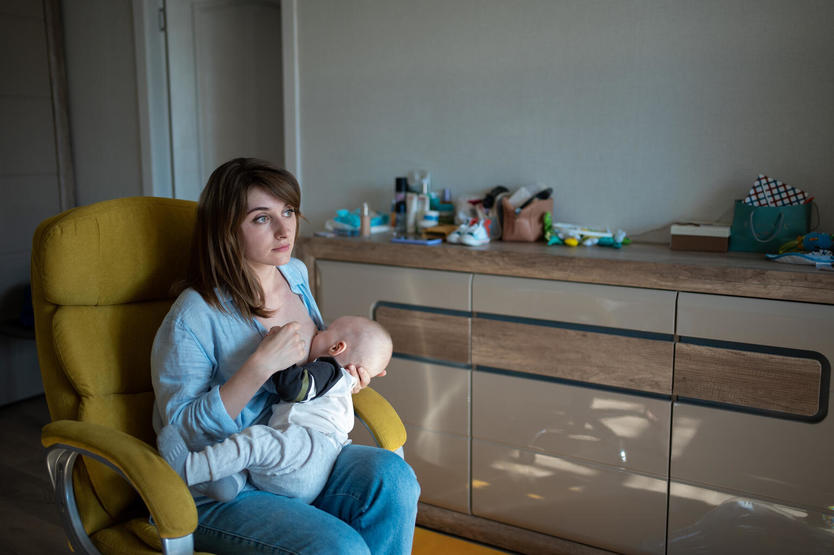Request support on coordination, information management, integration for nutrition outcomes or technical nutrition in emergencies assistance.
التماس الدعم لتنسيق التغذية وإدارة المعلومات والتغذية في حالات الطوارئ
Demander un appui pour la coordination de la nutrition, la gestion de l'information et la nutrition dans les situations d'urgence
Buscar apoyo para la coordinación de la nutrición, la gestión de la información y la nutrición en situaciones de emergencia
Solicite apoio para coordenação em nutrição, gestão de informação e nutrição em emergências
The Global Breastfeeding Collective led by UNICEF and WHO stresses that breastfeeding is the most reliable way to meet the nutritional needs of infants, especially during emergencies. It is good for the mothers as well, as it reduces their risk of breast and ovarian cancer, type 2 diabetes, and high blood pressure; consequently, this lowers healthcare costs, which has a positive impact on the family and community as a whole. Breastfeeding is an essential IYCF (Infant and Young Children Feeding) practice that is at the backdrop of every healthy family, particularly if they are on the move.
Since Russia invaded Ukraine in February 2022, many vital services and essential practices have been disrupted for Ukrainians. With regards to IYCF, two important issues are the high volume of infant formula donations and the uncontrolled distribution of breastmilk substitutes (BMS). Both are dangerous and life-threatening actions, especially during emergencies. That is why a Joint Statement was published to call all actors involved to protect, promote and support the feeding and care of children during the Ukraine Refugee Crisis.
Children are always at the forefront of illness and mortality rates during humanitarian emergencies, that is why we should draw special attention to their nutrition.
Learning from the past, looking at the future
The IFE Core Group, which feeds on data from the GNC Technical Alliance and other relevant actors, has compiled the lessons learned from Ukraine’s 2015 crisis to help inform the response to the current situation in 2022.
The findings reveal that, during the 2015 crisis, high use of infant formula was common among Internally Displaced Persons (IDPs) due to the lack of breastfeeding support. This is very worrying because the current war in Ukraine is projected to worsen, to affect millions of people and to demand higher humanitarian efforts. Without proper support for both breastfeeding and infant feeding such as complementary feeding assistance and targeted support for non-breastfed infants –namely the essential Blue Dot hubs and Mother Baby Spaces created through humanitarian partners– the health and nutrition of the children will decline.
Due to the absence of acute malnutrition and the lack of understanding of the importance of IYCF, nutrition was not perceived as a priority in 2015: there was no useful guidance neither on breastfeeding nor about non-breastfeeding practices. In Severodonetsk, for instance, breastfeeding was regarded as a practice for the most vulnerable people who are not able to pay for Breast Milk Substitutes (BMS).
Looking forward, this report highlights the importance of conducting early assessments to raise the nutrition profile of the country. It also notes that programmes should provide a special focus on new mothers who give birth to their children in the active phase of the conflict since the initial bonding is crucial for child development.

Breastfeeding children whilst on the move
In order to support those involved in planning, delivering and mobilising resources for IYCF for refugees and migrants in transit in Europe, this guidance was put together by UNICEF, UNHCR, Save the Children, ENN & reviewers. The report highlights key considerations with regard to breastfeeding, for instance:
->Being in transit can undermine maternal confidence and stop/reduce breastfeeding practices.
This is worrying because non-breastfed and partly-breastfed babies are more likely to experience illnesses and malnutrition. It is important to note that stress does not reduce breast milk supply but it can slow the release of milk, which can make babies fussy and upset. By creating a calm and supportive space with trained IYCF-E counsellors, who can additionally provide access to referrals to other support services, mothers and caregivers can get into the programs they need at such an extremely difficult time.
-> Immediate skin-to-skin contact with babies after birth and early initiation of breastfeeding is crucial.
Mothers should be encouraged to breastfeed for as long as possible, as well as to eliminate their dependence on breast milk substitutes.
For displaced families who must adapt to the specific challenges of feeding their babies whilst in transit, the Infant Feeding Support for Refugee Children has put together a flyer that is available in Ukrainian, English, Arabic, Farsi, Kurdish, Polish and Russian.
All the key nutrition resources for the Ukraine Refugee Crisis response are available here.

